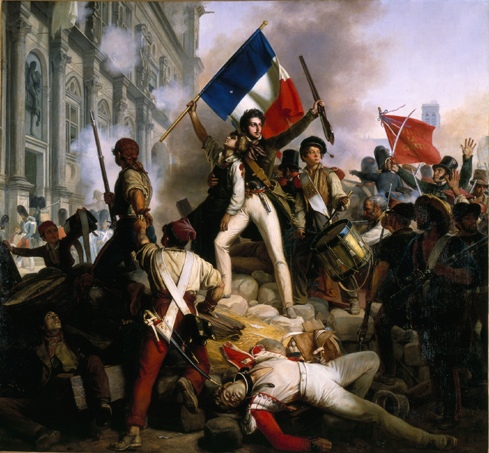Julie Starr on the Evolving Newsroom blog talks about the "tyranny of the 10 per cent".
She says "I wonder how much our perception of ‘the news’ would change if news stories as a whole were curated, packaged and distributed differently. "
News is designed to meet the requirements of those who consume that news. So it's understandable that a news meant for wide distribution can only provide a limited amount of depth to a mass audience. Luckily for Julie and for me, the channels for delivering news are evolving quickly, and the packaging and distribution is changing as well. So we have more options to look at in comparing said packages.
What new options do we have, or more interestingly what might we see over the next few years ? To answer that at a high level, look at how television changed when the number of channels increased. Television producers began to narrowcast into smaller niche segments, that demanded specific programming. Even if the low-quality shows persisted, there were more choices - including a new array of high quality programmes.
Today, the web is changing now news works. From the experience with television's narrowcasting, I expect the web should provide those of us who want higher quality news with a product geared to me. But, how will it be different ?
The answer to that question is revealed in what Julie wrote about a 'handful of stories'.
A story is a narrative arc with a beginning, middle, and end. Stories may offer us a moral, but they don't offer much to our real lives. They contain information, but they are not information of themselves. But they are popular. As a result, today's news is predominantly narrative, i.e. story-based. News stories are a necessary construct of a news market that meets the needs of the mass of consumers.
I am part of a growing segment of the public that wants more from the news, that wants information, without too many stories.
I don't care if the masses want their stories - crime, the misnamed "human interest" story, or celebrity gossip - in fact, I like those things as much as anyone. But I'm also a member of interested public who wants to consume something that filters out the noise. We need to get news 'reports', not news stories. There's nothing elitist about this, I just want a news product to help make sense of this world we're living in. Personally, I get enough stories in fiction. There is always a human element in a news report, but added personal perspectives on stories feel, too often, like filler to me.
Here's an example of how I would like to see my news packaged for me into a 'report':
If the government pledges to provide resources in order to found a program to create jobs, then a media outlet should provide the interested public with the information for that project from the outset: by providing the resources allocated, and the projected goals (eg. new jobs created) over a timeline.
A report can start giving us information from day 1, with updates given periodically just as happens with a well run project. That report can be a small narrative, with a few graphs - quite simple. At key milestones, we can evaluate whether the objectives are being met. The report can make use of the interactive aspects of new media as well, by existing on the web as a bookmarked link or an RSS feed without having to do it all in a few pages read one time through, as a story does. At any time during the project, the interested public will know from the report how it's progressing towards its objectives.
A news story on the same subject typically only happens a few times during the course of the project, and is be replete with political spin, and would undoubtedly feature the trappings of narrative: characters, conflicts, some dramatic images and the like meant to 'tart up' the information given in order to give it mass appeal. With a report, I can add the most of the analysis myself if I like.
If the media make a concerted effort made to frame and provide information - reports rather than stories - then intelligent members of the public will be drawn to those channels, and will better equipped to make decisions in an era of change. And hopefully the higher order news consumer will be drawn to such channels, and would bring attention to them.
Those of us who see the need for such a change now need to start talking about it now.



